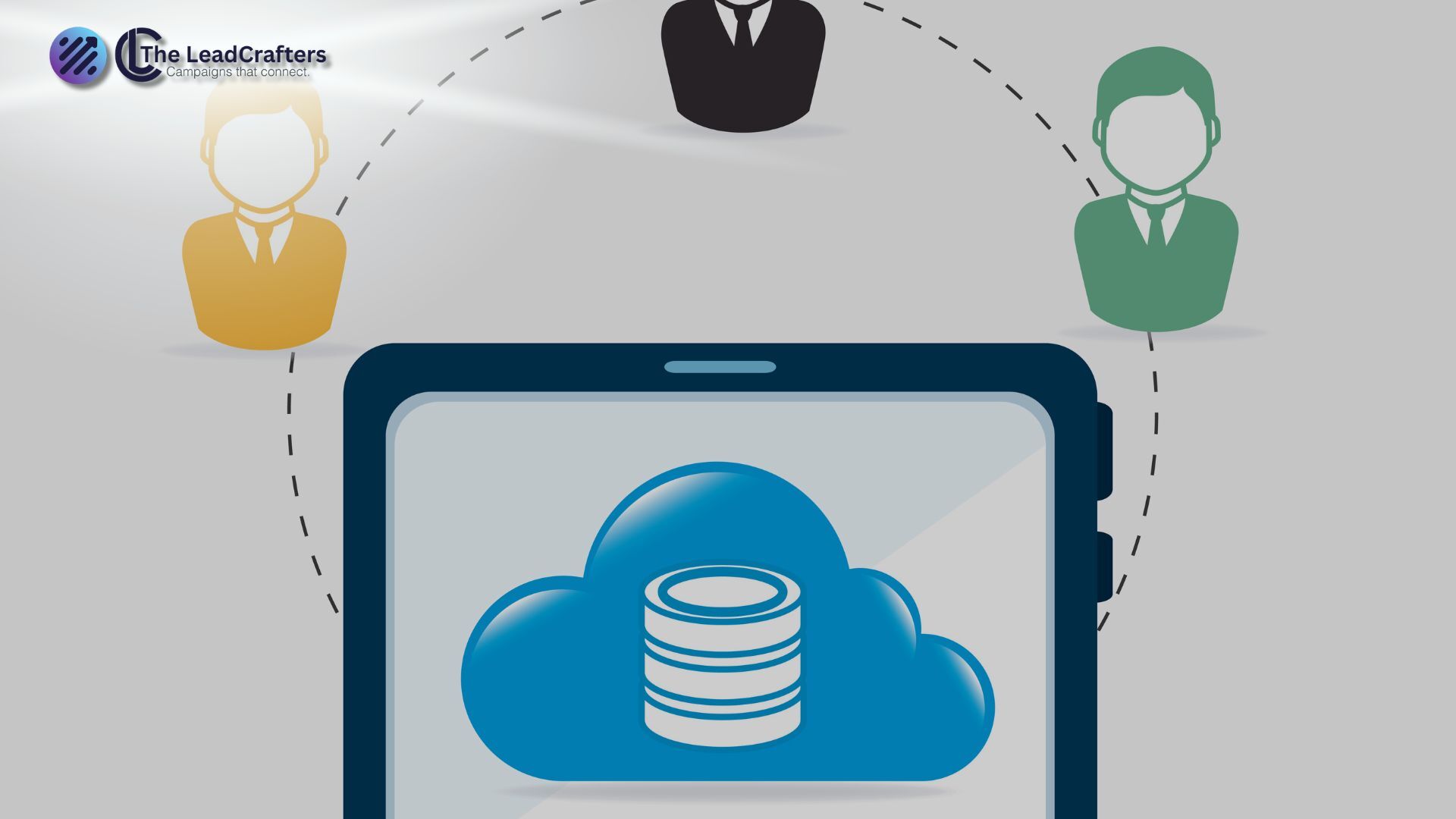Clean, well-structured data is the engine behind successful B2B marketing campaigns. When organizations invest in clean data practices, every channel—from personalized email to audience targeting—operates at peak efficiency. This article explores the vital role clean data plays in driving B2B marketing results and how business leaders can turn best practices into measurable revenue growth.
Introduction to Clean Data in B2B Marketing
In today’s digital-first B2B landscape, nearly every marketing decision stems from data. Marketers use data to identify target accounts, segment audiences, measure the effectiveness of campaigns, and personalize outreach. However, the true value of these efforts depends entirely on the quality of that data.
Clean data refers to information that is accurate, consistent, and timely. In practice, this means customer records that are free from duplication, typos, outdated contacts, or incomplete fields. Dirty data, on the other hand, can result in misrouted communications, flawed analytics, and missed opportunities.
For leading enterprises, maintaining clean data isn’t just a technical housekeeping task—it’s a strategic investment directly tied to lead generation, revenue, and growth. According to industry surveys, businesses lose an average of 12% of revenue due to inaccurate or poor-quality data (see this article on The Impact of Dirty Data on B2B Sales). Therefore, prioritizing a robust data hygiene program is a crucial step on the road to B2B marketing excellence.
Why Data Quality Matters in Modern B2B Marketing
1. Reliable Segmentation & Targeting
Effective segmentation lets marketers tailor messages and offers to specific sector, company size, job role, and buyer needs. But inaccuracy or inconsistency means erroneous outreach, wasted budget, and poor brand reputation. Clean data ensures that segmentation reflects real buyer intent, enabling precision in campaigns and nurturing efforts.
2. Accurate Lead Scoring & Routing
Tools like lead scoring and automated lead routing depend heavily on CRM data integrity. Incomplete or inconsistent records result in high-value prospects falling through the cracks or being assigned to the wrong sales team. By maintaining clean data, marketers can trust that every lead is qualified and routed to the right person quickly, which dramatically improves conversion rates.
3. Personalization at Scale
The foundation for successful personalization is accurate data on buyer behavior, firmographics, and engagement history. With dirty data, personalization breaks down—emails may greet prospects with the wrong name or send content irrelevant to their interests. Clean data allows for dynamic email content, web personalization, and bespoke nurture tracks that truly resonate.
The Cost of Dirty Data in B2B
Dirty data doesn’t just waste marketing dollars—it directly undermines sales pipeline and growth. Consider these real-world impacts:
- Revenue Loss: According to Gartner, poor data quality costs organizations an average $15 million per year (Gartner’s research).
- Misaligned Sales & Marketing: Inaccurate data can lead to miscommunication between sales and marketing teams, causing friction and lost opportunities.
- Inefficient Processes: Dirty data leads to redundant work as teams repeatedly correct errors or update incomplete records.
- Damaged Reputation: Repeatedly sending incorrect messages to prospects harms brand trust and reduces future open and engagement rates.
Core Data Hygiene Practices for B2B Marketers
Routine Data Audits
Regular database reviews detect duplicate records, outdated information, and format inconsistencies. Using tools such as automated data validation, businesses can proactively manage database cleanliness. Industry leaders recommend quarterly audits as a best practice for robust hygiene.
Deduplication Strategies
Duplicate records present a significant challenge in B2B databases. Employing deduplication solutions—either within a CRM or via external apps—helps ensure only one accurate record exists for each contact or account, improving reporting and sales follow-up efficiency. For more, see Best Practices for Duplicate Management.
Standardization & Validation
Standardizing fields (like job titles, company names, and email addresses) reduces manual errors and boosts system interoperability. Validation tools that check fields against business rules (such as mandatory formats or confirmed domains) prevent bad data from ever entering your system.
Enrichment & Cleansing
Partnering with third-party providers can supply missing firmographic or technographic data, boosting your own dataset’s value. It’s essential to regularly run cleansing processes to update, enrich, or remove outdated contacts—especially with staff turnover and changing business profiles in B2B.
Clean Data Fuels Measurable B2B Results
Improved Lead Generation
When your data is accurate, marketing teams generate higher quality leads via signals sourced from up-to-date profiles and relevant engagement histories. This enables more targeted outreach, better open rates, and ultimately, more meetings booked for sales.
Increased Campaign ROI
Campaign analytics are only as strong as the data fueling them. Clean data ensures reliable metrics, letting marketers measure ROI by channel, segment, and creative with confidence. This empowers teams to double down on what works and trim wasted spend.
Enhanced Account-Based Marketing (ABM)
ABM demands an intimate understanding of each target account. Clean, centralized data enables the orchestration of highly personalized multichannel campaigns, ensuring every interaction is relevant and timely. For more on ABM data success, check Account-Based Data Management Tips.
Shortened Sales Cycles
With accurate, real-time buyer data, marketing and sales teams can anticipate prospect needs, sequence timely touchpoints, and close deals faster. Dirty data—like disconnected phone numbers or outdated job titles—introduces friction and slows deal velocity.
Implementing Clean Data Initiatives: A Step-by-Step Guide
1. Assign Data Ownership
Start by clarifying who within your marketing team is accountable for data quality. Many organizations create a CDO (Chief Data Officer) role or assign data stewards for specific departments.
2. Document Data Entry & Maintenance Processes
Establish clear standards for collecting and updating information. This includes field requirements, input formats, and review intervals.
3. Integrate Automation Tools
Leverage marketing automation and CRM platforms that enable automatic validation, deduplication, and enrichment. Modern tools can flag suspected bad data and request updates from users or customers on-the-fly.
4. Provide Ongoing Training
Continuous training ensures all stakeholders—from marketing to sales—understand the value of clean data and their role in maintaining it.
Measuring the Impact: Clean Data KPIs for B2B Marketers
To gauge the impact of clean data, monitor these key metrics over time:
- Database Health Score: Percent of complete, accurate, and up-to-date records.
- Campaign Delivery & Bounce Rates: High delivery shows clean contacts, while low bounce rates mean fewer invalid emails.
- Segmentation Accuracy: Rate at which segmented campaigns outperform generic efforts in open and conversion rates.
- Lead Qualification to Pipeline Conversion: Percentage of marketing-qualified leads that progress to active pipeline status.
Real-World Illustration: Clean Data in Action
Take, for example, a SaaS company targeting enterprise IT directors. By implementing robust data hygiene practices, they corrected over 18% of records, eliminated thousands of duplicates, and appended missing industry fields. The result? Web personalization campaigns generated a 22% higher response rate and nearly doubled qualified appointments booked by sales.
Conclusion
Clean data is the foundation of all high-performing B2B marketing. Organizations that make data hygiene a priority see stronger segmentation, higher conversion rates, improved ROI, and better customer experiences. By following best practices—regular audits, deduplication, standardization, and staff training—any marketing team can realize the promise of accurate, actionable business data.
For forward-thinking marketers eager to drive growth, clean data isn’t just an operational checklist item—it is the ultimate competitive advantage.



